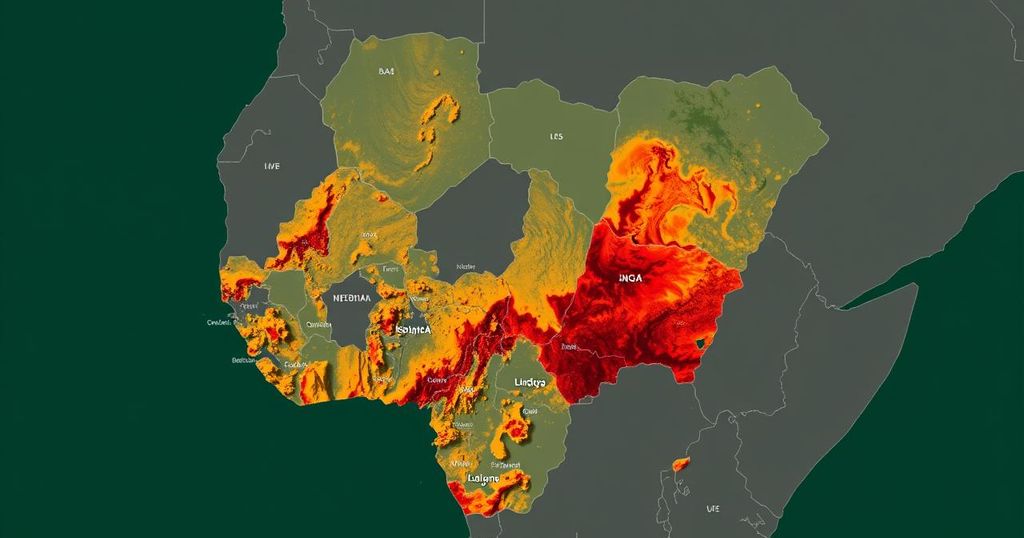Escalating Malnutrition Crisis in Nigeria: The Role of Climate Change and Conflict
The rates of severe malnutrition among children in Nigeria have surged, predominantly due to the effects of ongoing conflicts and climate change. The ICRC reports a 24 percent increase in malnutrition cases compared to the previous year, with over six million people expected to face food shortages in the Lake Chad region as violence and climate challenges exacerbate food insecurity.
Severe malnutrition rates have significantly escalated in Nigeria due to the combined effects of climate change and persistent armed conflicts in the northeastern region. The International Committee of the Red Cross (ICRC) reports that families, particularly in the Lake Chad area, are grappling with acute food shortages. Recent data indicates a 24 percent rise in malnutrition among young children compared to the previous year, which presents a critical public health concern. For instance, Rabiatu Jubrilla recounted her distressing experience at the ICRC’s Mubi stabilization clinic, noting that when she brought her son for treatment, he was unable to sit independently, having lost considerable weight after she ceased breastfeeding him at 1 year and 9 months. She initially assumed the weight loss was due to the lack of breast milk.
The deteriorating situation in Nigeria is attributed to ongoing armed conflict, primarily instigated by groups such as Boko Haram. This violence has led to the displacement of millions and has compromised local agricultural systems. The crisis is exacerbated by climatic challenges, including erratic rainfall patterns that diminish food production capabilities. Such a precarious environment has rendered the population increasingly dependent on subsistence farming, making them highly vulnerable to food insecurity. Farmers like Paul Ezra from Madagali village express frustration over the inability to access their fields due to the threats from armed groups. The violence has seen a striking surge, with the ICRC noting a 58 percent increase in hostilities in the Lake Chad region, further straining communities’ food supply. Compounding these issues, severe flooding this year has caused substantial crop damage, further compromising food availability and pushing more households toward malnutrition. The ICRC forecasts that over six million individuals in the Lake Chad region may face food shortages in the near future as a direct result of these converging factors.
In summary, the alarming rise in malnutrition rates in Nigeria, driven by the dual challenges of climate change and ongoing conflict, signals an urgent humanitarian crisis. The findings by the International Committee of the Red Cross highlight the significant impact of violence on agricultural productivity and food access. With the onset of climate-related catastrophes and intensified conflicts, proactive measures must be undertaken to address these pressing issues and safeguard the well-being of vulnerable populations.
Original Source: www.africanews.com




Post Comment